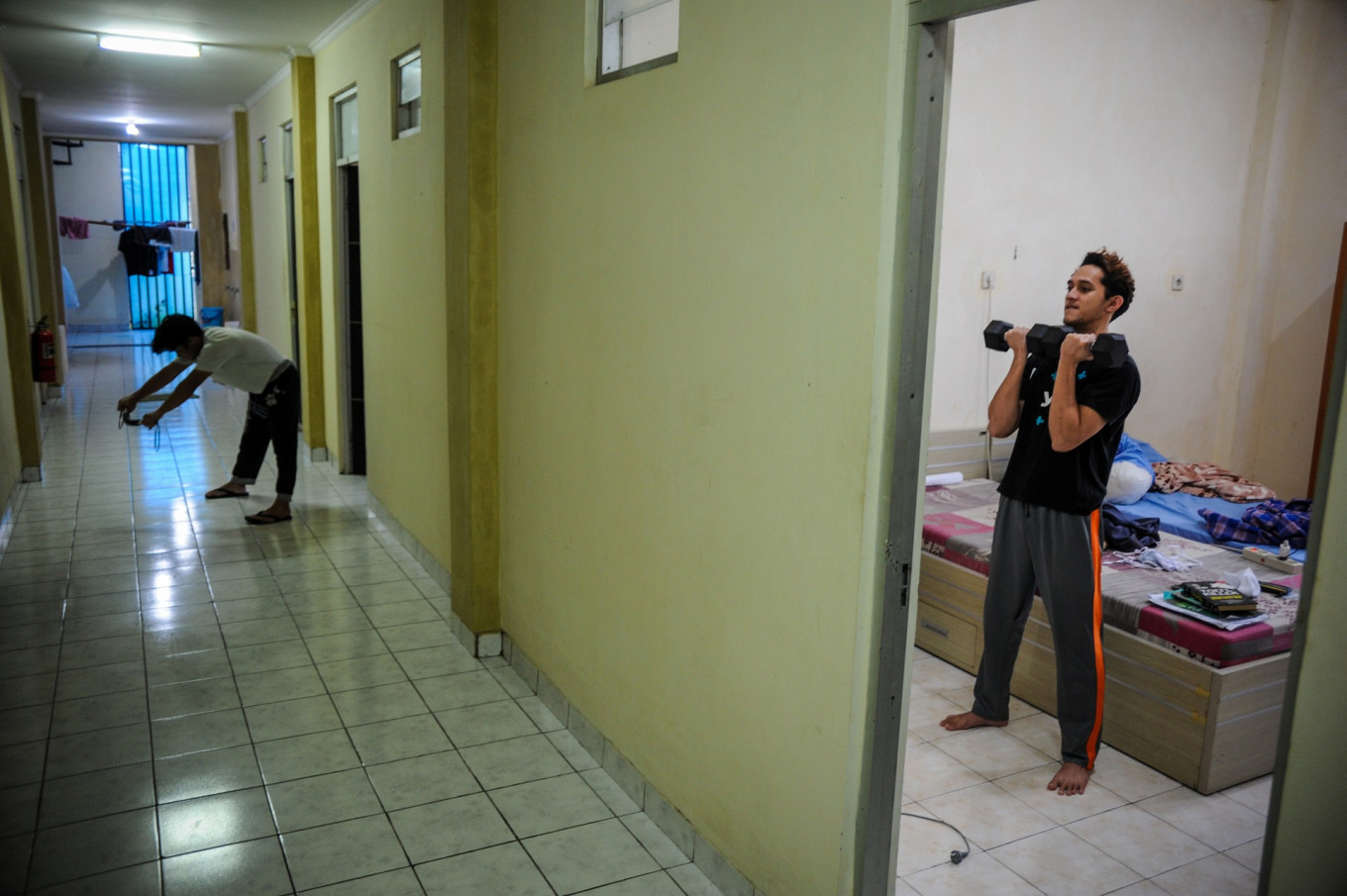Popular Reads
Top Results
Can't find what you're looking for?
View all search resultsPopular Reads
Top Results
Can't find what you're looking for?
View all search resultsCOVID-19 education funds leave much to be desired
Private universities, teachers and students are urging the government to step up its education policies, criticizing its latest financial assistance as inadequate to address the concerns of the education sector during the pandemic.
Change text size
Gift Premium Articles
to Anyone
Private universities, teachers and students are urging the government to step up its education policies, criticizing its latest financial assistance as inadequate to address the concerns of the education sector during the pandemic.
This follows Education and Culture Minister Nadiem Makarim’s announcement on Monday about a series of measures taken to help the education sector, including by relaxing university tuition fees and requirements for school operational assistance (BOS).
“We have heard not only from Commission X but also from members of the public that many schools and universities, especially private ones, are hit hard during the COVID-19 pandemic,” Nadiem said during a hearing with House of Representatives Commission X, which oversees education.
“So last week, we responded to these complaints by rolling out several policies as well as tangible and real aid,” he added.
One new policies, for instance, allow students of state universities to either request delayed tuition payment, a reduction in fees or an instalment plan, depending on their financial situation. The ministry encourages private universities to do the same.
It also stipulates that students who are on leave or not taking course credits no longer need to pay tuition fees, while those who are in their final semesters will only pay up to half of their tuition fees.
The National Association of University Student Executive Bodies (BEM-SI) contends that the government should have cut tuition fees across the board without the need for students to request it, saying full tuition fees were unfairly charged from students who had their courses taught online during the pandemic.
Read also: University BEMs urge Nadiem to cut tuition during COVID-19 'study at home' policy
The tuition fee adjustments on offer now had already existed before the pandemic but would usually require students to go through long administrative processes and often have their requests rejected, he said.
“The lack of a policy to cut tuition fees could push down the participation rate in higher education,” Lugas Presma of the BEM-SI said.
“And there are two possibilities: It could push up the numbers of students dropping out or taking leave or it could discourage potential new students from enrolling because of high fees.”
Private Universities Association (APTISI) chairman Budi Djatmiko said that failure to cushion the COVID-19 impact on university students could result in a spike in dropouts, which could cause “a lost generation” as a result of a jeopardized education.
“And that would be the government’s biggest sin,” he said.
He praised the ministry’s new policy to allocate Rp 1 trillion (US$70.6 million) to help 410,000 university students, mostly in private universities, pay their tuition fees.
However, the government still only allocated a small portion of its total budget for private universities, he said. The state budget only earmarked 7 percent of the total university budget for private universities, with the remaining 93 percent going to state universities, according to his calculations. In addition, only half of the overall education budget is actually allocated for educational needs.
“Private universities are also part of Indonesia. So, why are they being treated differently?” he said, adding that government support for private universities was crucial to improve overall access to higher education.
About 88 percent of all universities are small-sized private universities with less than 10,000 students, according to Budi, while the remaining are state universities and large private universities.
Meanwhile, Indonesian Teachers Association (PGRI) head Unifah Rosyidi lauded the government’s decision to include private schools in its COVID-19 policies and modify requirements for grant recipients to alleviate the burden of pandemic-hit elementary and secondary schools.
Before the pandemic, BOS Afirmasi funds were only given to state schools in the underdeveloped and remote regions, while BOS Kinerja funds were given to high-performing state schools.
Under the new scheme, the government gives Rp 60 million per year to more than 56,000 state and private schools in regions that are hardest-hit by COVID-19.
The grants can be used to pay honorarium-based teachers, fund home-learning needs like phone credit and internet plans, buy COVID-19 sanitary goods like soap and disinfectant or pay salaries of other school workers.
But Unifah said she found goods procured using BOS funds through the ministry’s electronic system called SIPLah were more expensive than the actual price and schools could only buy them at designated shops.
The funds also usually need to go through multiple regional institutions before they could be used by schools, depending on each region’s financial management regulations.
She advised policymakers to review how the authority to distribute BOS funds was delegated between the central and regional governments, in order to cut bureaucratic procedures and yet maintain accountability.










